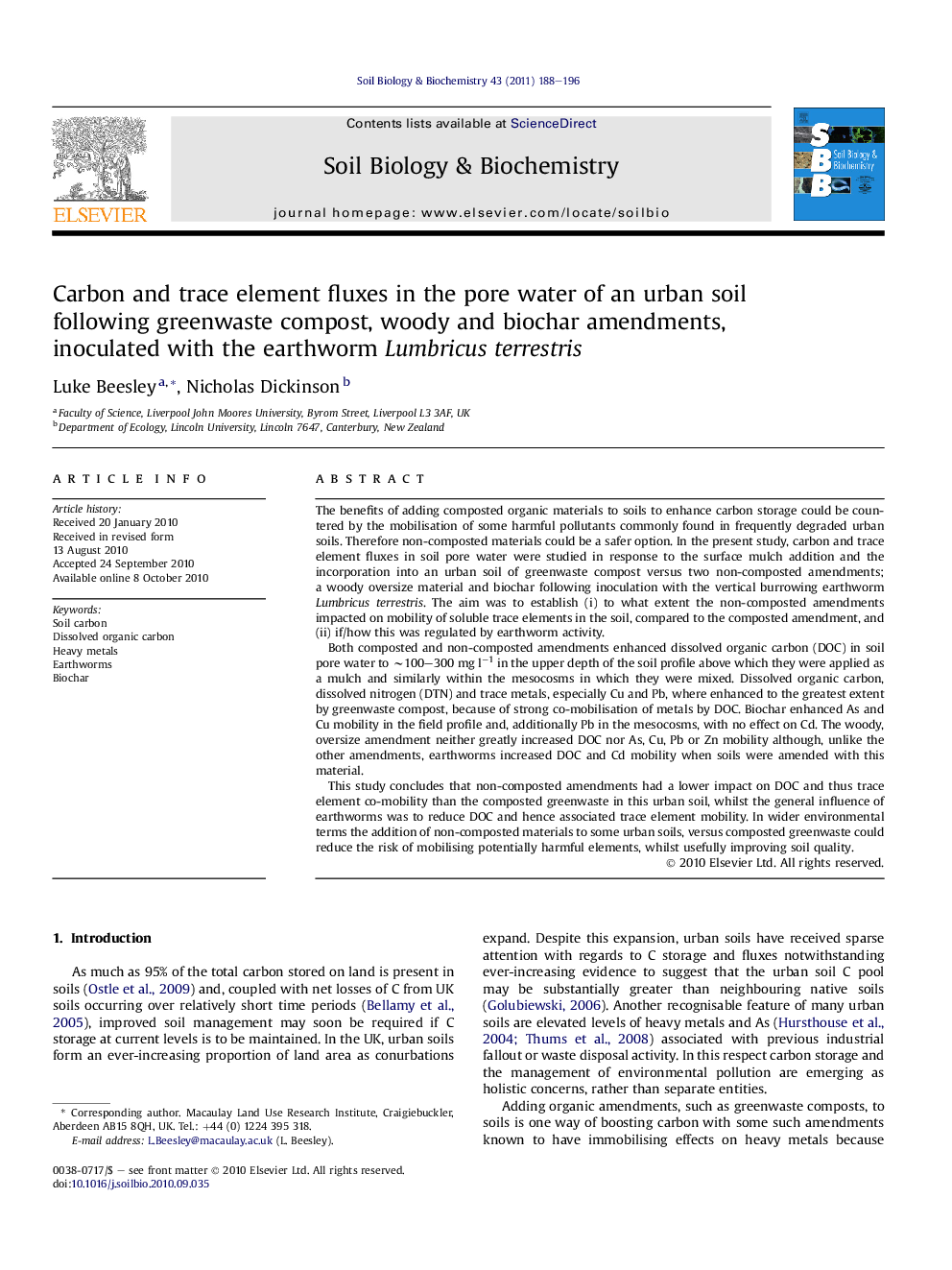| Article ID | Journal | Published Year | Pages | File Type |
|---|---|---|---|---|
| 2025721 | Soil Biology and Biochemistry | 2011 | 9 Pages |
The benefits of adding composted organic materials to soils to enhance carbon storage could be countered by the mobilisation of some harmful pollutants commonly found in frequently degraded urban soils. Therefore non-composted materials could be a safer option. In the present study, carbon and trace element fluxes in soil pore water were studied in response to the surface mulch addition and the incorporation into an urban soil of greenwaste compost versus two non-composted amendments; a woody oversize material and biochar following inoculation with the vertical burrowing earthworm Lumbricus terrestris. The aim was to establish (i) to what extent the non-composted amendments impacted on mobility of soluble trace elements in the soil, compared to the composted amendment, and (ii) if/how this was regulated by earthworm activity.Both composted and non-composted amendments enhanced dissolved organic carbon (DOC) in soil pore water to ∼100–300 mg l−1 in the upper depth of the soil profile above which they were applied as a mulch and similarly within the mesocosms in which they were mixed. Dissolved organic carbon, dissolved nitrogen (DTN) and trace metals, especially Cu and Pb, where enhanced to the greatest extent by greenwaste compost, because of strong co-mobilisation of metals by DOC. Biochar enhanced As and Cu mobility in the field profile and, additionally Pb in the mesocosms, with no effect on Cd. The woody, oversize amendment neither greatly increased DOC nor As, Cu, Pb or Zn mobility although, unlike the other amendments, earthworms increased DOC and Cd mobility when soils were amended with this material.This study concludes that non-composted amendments had a lower impact on DOC and thus trace element co-mobility than the composted greenwaste in this urban soil, whilst the general influence of earthworms was to reduce DOC and hence associated trace element mobility. In wider environmental terms the addition of non-composted materials to some urban soils, versus composted greenwaste could reduce the risk of mobilising potentially harmful elements, whilst usefully improving soil quality.
Research highlights► Composted and non-composted amendments variously enhance dissolved organic carbon (DOC) mobility in this urban soil, which co-mobilises some trace elements. ► Earthworms reduce the mobility of trace elements but increase soil respiration, especially at higher temperatures. ► Biochar both raises the pH of pore water and co-mobilises DOC and As which implies caution when applying this material to some contaminated soils.
